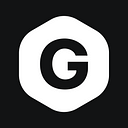Wish you could actually OWN your in-game items? Blockchain may just be the answer.
Half of the top 100 games on Steam account for over $1 billion worth of sales in 2022, with the likes of Call of Duty: Modern Warfare 2 and FIFA 23 leading the way. With millions of gamers spending money on weapons, avatars, characters and player packs, there is a question as to whether it’s right for companies to offer digital items that are not truly owned by players.
Would you pay full retail price for a car that was only a rental?
The issue for players is that these in-game items are effectively licensed; they are not owned by the player. The scroll of legal text that we skip through to the ‘I agree’ button makes that pretty clear. Indeed, there is no effective way for players to ever own these items in these top-selling games, meaning that when you’ve had your fill of a game or the next iteration comes out, you’re left with nothing to show for your hard-earned cash.
Unless, of course, the game you’re playing is built on the blockchain.
What is the blockchain? It’s a digital ledger of transactions stored on secure connections, meaning it cannot be tampered with by bad actors. Essentially, it allows for unquestionable proof of possession of any item. You buy a new character and it’s uniquely yours — even if the aesthetics are not.
So, what does this mean for players?
Well, first and foremost, it means they are not spending their money on items that have no actual value. It means that their purchased items can be sold, traded, or possibly even used in partner games. And it doesn’t stop there — tokens earned in games can also have real monetary value, too. So rather than pay for token packs that offer nothing more than a path to a shiny new weapon or vehicle, blockchain-based tokens can be converted into any other currency — even those of other games.
With the potential for blockchain games to be profitable for companies while still guaranteeing fairness for their player base, some companies have already begun to implement the technology into their games, providing huge variety in terms of gameplay and yet offering players an out by allowing them to sell their items or convert their earned tokens to use elsewhere.
To get a glimpse of the diversity within blockchain-based games, take a look at three great examples of blockchain done right:
1. Arc8
An ad-free app for iOS and Android that is packed with arcade classics and original games. Compete against other players to earn both the GMEE token and partner tokens. Each new player account comes with a wallet for your earnings, meaning it’s a great entry point for the blockchain-curious. There’s also the chance to own your own G-Bot — an upgradable, breedable fighter that grants access to exclusive games, tournaments and prize pools. While we readily admit that this is our game, our 4.9-star rating on the Play Store suggests it’s not just us that love it! Download it here.
2. Phantom Galaxies
An open-world space simulator with a thrilling narrative and the chance to fight in the far reaches of the galaxy with your own mech shooter. But it’s not all battles — as well as exploring and encountering alien civilizations, players can even cooperate in player organizations and corporations. This decentralized control in the hands of players is a perfect example of what Web3 can offer. Check it out here.
3. REVV Racing
One for motorsport aficionados. This game allows you to build a racing team and compete against other drivers to earn the REVV token as well as new cars. Some races are open to all players, while others — much like in real life — are limited to certain car types. You can even hire other drivers if you want a more skilled driver to race for you. Check out their site here.
So, if you want to see the back of loot boxes, addictive spending loops and companies draining players of their funds, then this is the way. Find a blockchain-based game that suits your interests, spend your money there, and show the giants of the gaming industry that blockchain is something that we as players welcome in our games.
Follow us on Medium for upcoming insight into the gaming industry, as well as updates about our own web3 mobile app.
